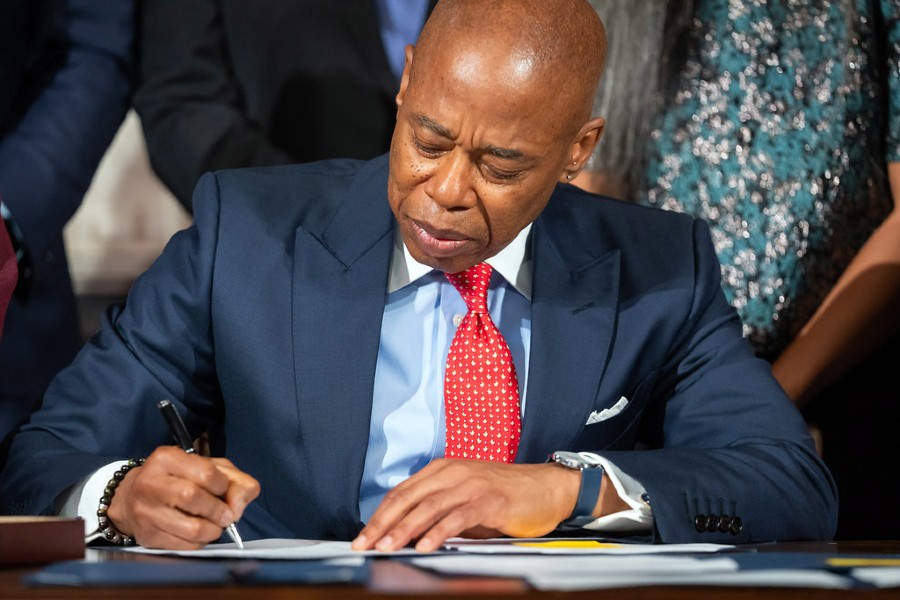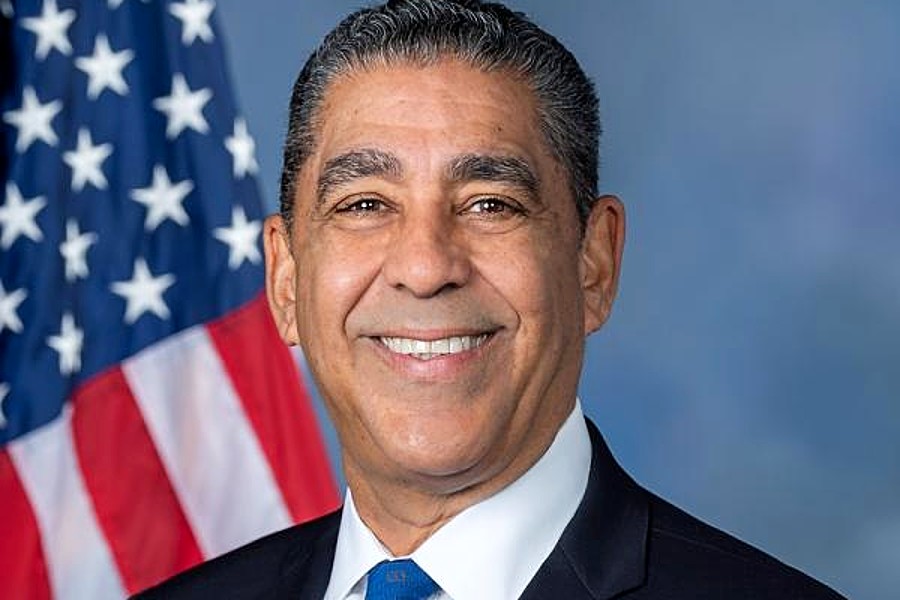 Herb Jeffries, the jazz singer and actor who performed with Duke Ellington and was known as the “Bronze Buckaroo” in a series of all-black 1930s Westerns, died of heart failure Sunday morning at a Los Angeles hospital. He was 100.
Herb Jeffries, the jazz singer and actor who performed with Duke Ellington and was known as the “Bronze Buckaroo” in a series of all-black 1930s Westerns, died of heart failure Sunday morning at a Los Angeles hospital. He was 100.
His death was confirmed by Raymond Strait, who worked with Jeffries on his not-yet-published autobiography titled “Color of Love.”
With a mellow voice and handsome face, Jeffries became familiar to jazz fans, but segregation in the film industry limited his movie career. He scored a big hit with Ellington as the vocalist on “Flamingo,” recorded in 1940 and later covered by a white singer, the popular vocalist Tony Martin.
Among the other songs he did with Ellington were “There Shall Be No Night” and “You, You Darlin’.”
“The camaraderie in his band was like a bunch of guys in college,” Jeffries recalled in the book “Off the Record: An Oral History of Popular Music.” ”Ellington had a knack for developing talent and stars. … He was more like a father to me than a boss.”
Jeffries has been described as the only black singing cowboy star in Hollywood history and, more recently, after the deaths of Gene Autry, Roy Rogers and others, as the “last of the singing cowboys.”
… he starred in four Westerns aimed at black audiences from 1937 to 1939: “Harlem on the Prairie,” ”Two-Gun Man From Harlem,” ”The Bronze Buckaroo” and “Harlem Rides the Range.”
Sometimes billed as Herbert Jeffrey, he starred in four Westerns aimed at black audiences from 1937 to 1939: “Harlem on the Prairie,” ”Two-Gun Man From Harlem,” ”The Bronze Buckaroo” and “Harlem Rides the Range.”
As The New York Times noted, the low-budget films (produced by a white man, Richard C. Kahn) are “notable less for what’s in them than that they exist at all.”
Jeffries starred as Bob Blake. The films featured his horse Stardusk, the vocal group the Four Tones, and comic relief from prolific character actor Mantan Moreland. Among the songs: “I’m a Happy Cowboy,” ”Get Along Mule” and “(Got the) Payday Blues.”
“The Bronze Buckaroo” was recently revived on a DVD release called “Treasures of Black Cinema.”
Jeffries “did something outrageous, and then rode off into the sunset,” actor-director Mario Van Peebles told People magazine in 2005. “He did us proud.”
Jeffries remained active as a singer into his 80s and 90s, touring and putting out the 1995 CD “The Bronze Buckaroo (Rides Again)” and following it up in 2000, with “The Duke and I.” Among the honors that came his way late in life was a star on the Hollywood Walk of Fame, dedicated in 2004.
“I don’t believe in age,” Jeffries told The New York Times in 1995, when he was appearing at a local club. “I believe this magnificent thing we have on our shoulders can help you evolve,” he said. “In jazz, we keep going. There’s no such thing as retiring, or being retired, so you never feel unwanted or useless. And that keeps your body vital.”
He was born in Detroit to a racially mixed Irish and Italian couple, referring to himself in a 2004 interview with The Oklahoman as “an Italian-looking mongrel with a percentage of Ethiopian blood, which enabled me to get work with black orchestras.”
He lamented the days touring in the South when he was with Earl Hines in the 1930s. Black audiences were made to stand separately off in a corner and not allowed to dance.
“I don’t think anybody was thrilled about the conditions, but if you wanted to advance and develop you couldn’t show anger,” he said.
He made light of the covering of “Flamingo,” too, recalling he joked with Martin that he knew Martin had copied him because “you made the same mistake in the lyrics that I did.”
Jeffries told American Visions, a publication on African-American culture, in 1997 that he was inspired to seek backing for the cowboy movies after seeing a black boy crying because other children with him “wouldn’t let him play cowboy. But in the real West, one of every four cowboys was black.”
But he had no plans to star in them himself, he said, until the search for a suitable actor-singer-rider came up short and he embarked on a crash course on lasso handling and other Western skills.
Strait said Jeffries recently had several surgeries that “just wore him out.” He added that Jeffries “believed in one world and one people and was one of the most generous people I’ve ever met. He was always funding something or doing something for kids.”
Jeffries is survived by his fifth wife, Savannah; three daughters; and two sons.
Check out the video:
Become a Harlem Insider!
By submitting this form, you are consenting to receive marketing emails from: . You can revoke your consent to receive emails at any time by using the SafeUnsubscribe® link, found at the bottom of every email. Emails are serviced by Constant Contact



















